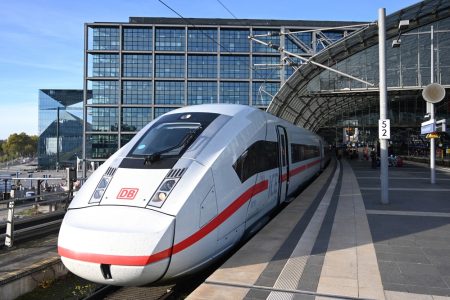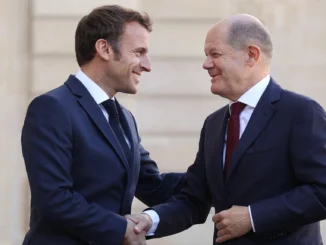
The heads of Germany’s coalition government clinched a new agreement on the country’s fiscal budget for 2025, on Friday (16 August), reaching a compromise solution to the remaining sticking points that had emerged last month.
The initial draft budget of €481 billion was adopted in early July with the conditionality of commissioning a legal assessment of the compatibility of three specific measures with the German constitution.
The provisions at stake – which aimed to reduce an outstanding €17 billion budget gap – included the government’s plan to issue loans, instead of grants, to railway operator Deutsche Bahn and motorway operator Autobahn, as well as to tap into unused funds from the government’s development bank KfW.
Of the three measures assessed, the government now agreed to turn its funding to Deutsche Bahn into €3 billion loans. In addition, it will inject €4.5 billion of additional equity into the company, government spokesperson Steffen Hebestreit said in a statement on Friday.
The spokesperson said both moves, considered “financial transactions,” will not count towards the country’s constitutional “debt brake,” which limits structural deficits to 0.35% of the German GDP annually.
“The provisions of the debt brake in the German Constitution will continue to be complied with and there will be no circumvention,” said Hebestreit.
The other two measures – which were assessed by law Professor Johannes Hellermann and, separately, by the scientific advisory board for the Finance Ministry – will not be implemented as they would have raised the risk of legal recourse to be taken.
Instead, the remaining gap of €12 billion will be counted as part of the “global budget reduction” – a commitment, by the government, to spend less than what is officially included in the budget.
“Many years of budgetary experience show that not all projects can be realised in the course of a financial year,” said Hebestreit. Thus, it was a “common instrument in budget planning,” to leave such a gap – despite usually being at a lower level.
The draft budget will now be sent to the German parliament for debate, with the aim to reach official adoption by November.
Take the Survey at https://survey.energynewsbeat.com/






